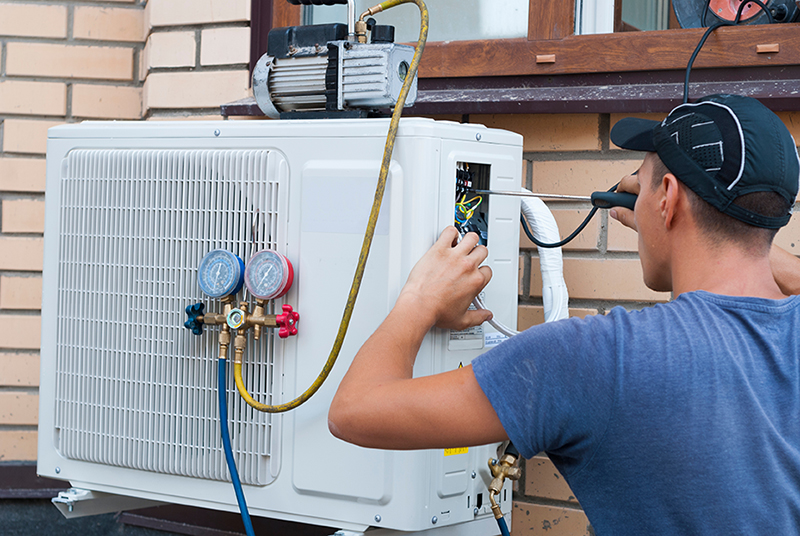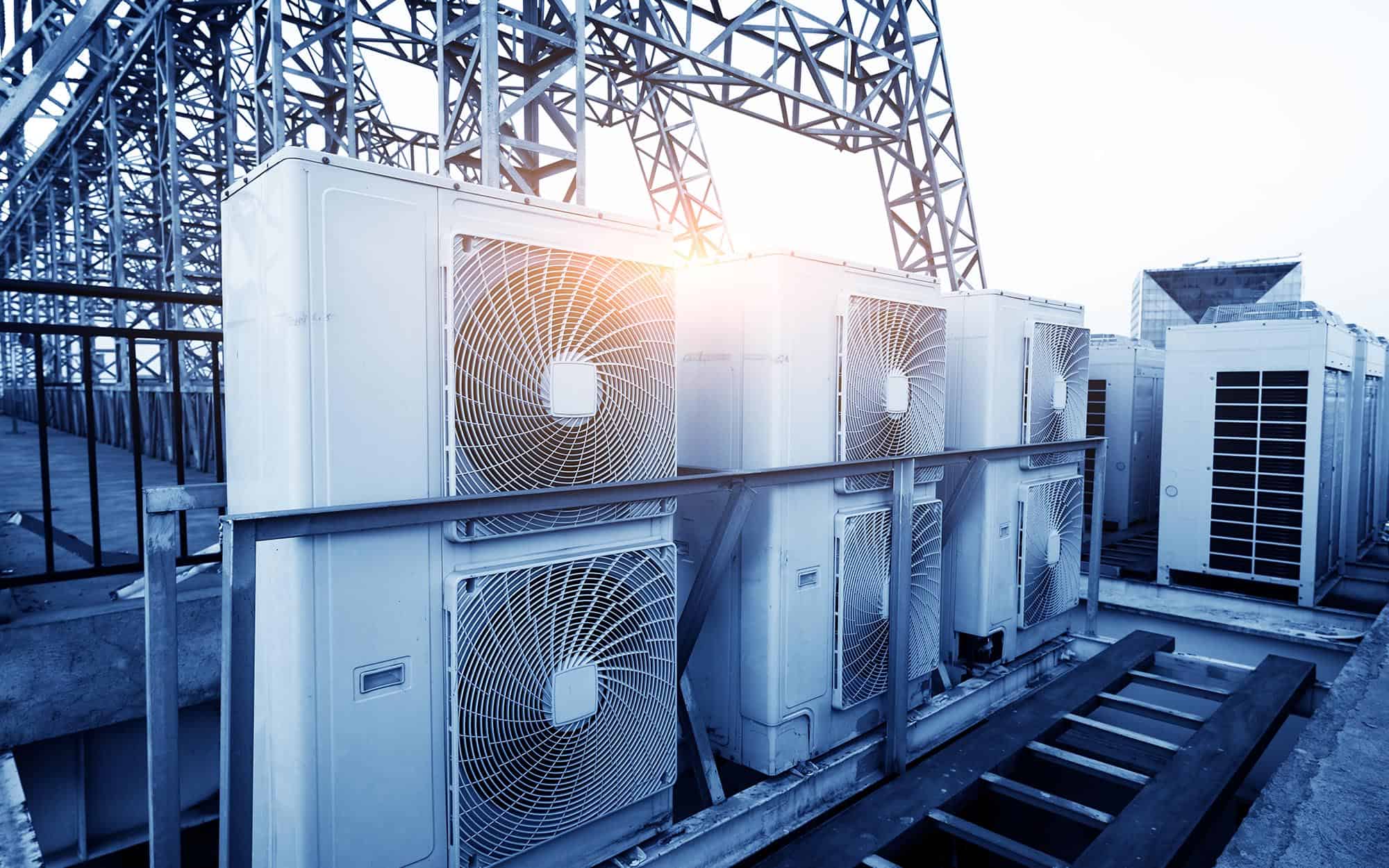Affordable Furnace Installation For Warm Homes In Local Communities
Your Guide to Picking the Right HVAC System for Your Requirements
Picking a proper A/c system is a vital decision that can considerably impact convenience and energy effectiveness in your home. In addition, comprehending the various kinds of systems offered and their power ratings can help direct your option.
Understanding Cooling And Heating System Types
When choosing a HVAC system, it is important to recognize the numerous kinds offered to fulfill your particular needs. The primary classifications of cooling and heating systems consist of central air conditioning systems, ductless mini-split systems, heatpump, and heater systems.
Air conditioning systems are designed to cool multiple rooms utilizing ductwork to distribute conditioned air. They are suitable for bigger homes needing consistent temperature control. Ductless mini-split systems, on the other hand, provide flexibility and effectiveness, as they enable for zoning capacities, making it possible for individual room temperature level policy without the demand for ductwork.
Heat pumps run by moving heat instead than generating it, making them an energy-efficient alternative for both home heating and air conditioning. On the other hand, heater systems make use of burning to create heat, making use of either electrical power, oil, or gas.
Each system has distinctive advantages and factors to consider, including installment needs, maintenance, and general prices. Recognizing these types will assist home owners make notified decisions based upon their details needs, climate, and budget restraints, ultimately ensuring optimal comfort and effectiveness.
Assessing Energy Performance
Energy efficiency is an important element in the choice of a cooling and heating system, as it straight impacts both energy costs and ecological sustainability. When assessing energy performance, several metrics and scores can aid assist your decision. The Seasonal Energy Performance Proportion (SEER) and the Heating Seasonal Efficiency Variable (HSPF) are essential signs for cooling systems, representing their effectiveness over a normal air conditioning and home heating season, respectively. Greater SEER and HSPF rankings show far better energy performance, leading to minimized power consumption.
In addition, try to find systems that have gained the power STAR tag. This certification represents that the equipment satisfies rigorous energy effectiveness guidelines set by the united state Epa. Take into consideration the system's variable-speed technology, which allows for much more efficient procedure by changing the output to match need, additionally enhancing energy savings.
In addition, appropriate insulation and air duct securing can substantially affect the system's total effectiveness. In recap, choosing an energy-efficient a/c system not just lowers your power expenses yet likewise adds to a more lasting atmosphere, making it an essential consideration in your purchasing process.
Assessing System Dimension
Selecting the ideal size for an a/c system is vital to making sure ideal performance and efficiency. An undersized system might have a hard time to preserve preferred temperature levels, causing enhanced deterioration, greater energy usage, and lessened comfort. Alternatively, an oversized system can cause quick cycling, which not just triggers inadequacies however additionally influences humidity control and air top quality.
To assess the excellent sizing, it is necessary to conduct a tons estimation, which considers factors such as the square video of the space, insulation levels, window sizes, and neighborhood environment problems - air duct Discover More Here cleaning coquitlam. This computation helps determine the British Thermal Units (BTU) needed for home heating and air conditioning. Additionally, it is crucial to make up details demands, such as the number of passengers and the visibility of heat-generating home appliances

Installation Prices and Budget
A comprehensive understanding of installation costs is crucial for house owners and services taking into consideration a new a/c system. The complete expense of setup can differ widely based on a number of elements, consisting of the kind of system, the complexity of installment, and the location of the property. Typically, installment expenses can vary from $3,000 to $10,000, depending on the system's size and effectiveness.
When budgeting for a cooling and heating system, it is important to take into consideration not only the initial setup costs however also any type of extra costs that may arise, such as ductwork alterations, electrical upgrades, or authorizations. Additionally, it is recommended to get numerous quotes from licensed HVAC contractors to guarantee affordable rates.
House owners should additionally factor in the possible lasting cost savings related to energy-efficient systems. While the in advance expenses may be higher, energy-efficient models can cause significant cost savings on utility bills with time.

Upkeep and Longevity Factors To Consider

Proper maintenance consists of regular examinations, filter replacements, and cleansing of ducts and coils (hvac). Overlooking these jobs can cause lowered efficiency, boosted power costs, and premature system failing. Homeowners ought to additionally take into consideration the schedule of solution contracts, which usually supply scheduled upkeep and top priority solution, making sure that the system stays in peak problem
Long life varies by system kind; for circumstances, well-kept central air conditioning devices can last 15 to 20 years, while warm pumps may have a lifespan of 10 to 15 years. Picking a system with a solid credibility for reliability, along with buying routine upkeep, can considerably enhance the system's sturdiness. In addition, choosing higher-efficiency versions may bring about lasting savings on click here now power costs, stabilizing the preliminary financial investment in time.
Conclusion
In conclusion, choosing an appropriate HVAC system requires cautious consideration of different variables, including system types, energy effectiveness, and dimension. Inevitably, a well-informed choice will certainly improve convenience and efficiency in residential atmospheres while optimizing energy savings.
Selecting an appropriate Heating and cooling system is an essential choice that can significantly affect comfort and energy efficiency in your home.Power effectiveness is a critical variable in the selection of a Heating and cooling system, as it straight affects both utility costs and ecological sustainability. The Seasonal Power Effectiveness Proportion (SEER) and the Heating Seasonal Performance Factor (HSPF) are vital indicators for air conditioning systems, representing their effectiveness over a normal cooling and home heating season, specifically. Choosing a system with a strong reputation for dependability, along with investing in routine upkeep, can substantially enhance the system's sturdiness.In conclusion, choosing an ideal Heating and cooling system demands mindful consideration of different factors, including system kinds, energy effectiveness, and size.